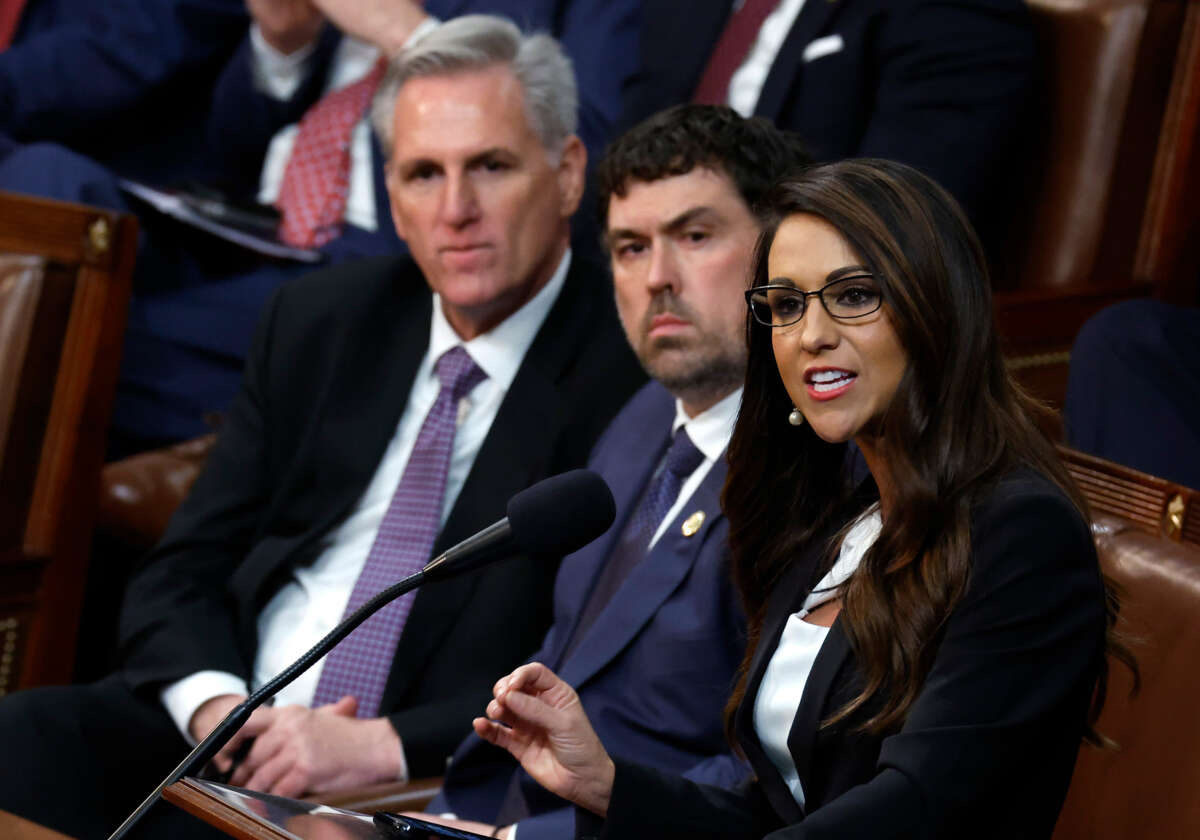Support justice-driven, accurate and transparent news — make a quick donation to Truthout today!
On Sunday, Rep. Lauren Boebert (R-Colorado) said that Republican lawmakers would pursue changes to federal elections law to impose term limits on members of Congress, an action that would curtail the rights of U.S. voters.
“The 118th Congress WILL vote on Term Limits for lawmakers. After years and years of talk, we’ll finally see where people truly stand on this issue,” Boebert tweeted on Sunday afternoon. She did not say what she believes the term limit should be, however.
On Monday morning, Rep. James Comer (R-Kentucky) said during a Fox News interview that he also hoped for a vote on the issue, claiming it was one that his constituents were “most excited” to see.
“This is something that Republicans campaign on every election, but yet we haven’t had a term limits vote in the six years I’ve been in Congress,” Comer said.
Polling shows that most Americans support the idea of term limits; in a Reuters/Ipsos poll published in November, 79 percent of respondents agreed that members of Congress should be limited to a certain number of years in office. Still, the concept is inherently anti-democratic, as it limits voters’ ability to decide who they want to represent them.
According to a 2018 analysis from The Brookings Institution, term limits remove power from voters and prevent them from voting for lawmakers who have already earned their trust.
Term limits also make it more difficult for lawmakers to effectively work on behalf of constituents’ interests — having a new influx of elected leaders every few years means that inexperienced lawmakers have to learn the process of legislating upon taking office. “Crafting legislative proposals is a learned skill; as in other professions, experience matters,” Brookings noted, adding that “the public is not best served if inexperienced members are making policy choices with widespread, lasting effects.”
Though rooting out corruption is one of the primary justifications for promoting term limits, corruption often takes place when lawmakers are inexperienced. “Novice legislators will look to fill their own informational and policy gaps by an increased reliance on special interests and lobbyists,” Brookings pointed out.
In response to Boebert’s tweet, one Twitter user pointed out the issues that arose when term limits were introduced at the state level in Michigan.
“I had an opportunity to vote for term limits in Michigan and I supported it,” wrote Douglas Allen Arenberg, a professor of pulmonary diseases at the University of Michigan. “I regret it now. What you have now are inexperienced people with no reason to even try to work with one another. It has resulted in legislative paralysis best, and outright stupidity at worst.”
Media that fights fascism
Truthout is funded almost entirely by readers — that’s why we can speak truth to power and cut against the mainstream narrative. But independent journalists at Truthout face mounting political repression under Trump.
We rely on your support to survive McCarthyist censorship. Please make a tax-deductible one-time or monthly donation.
